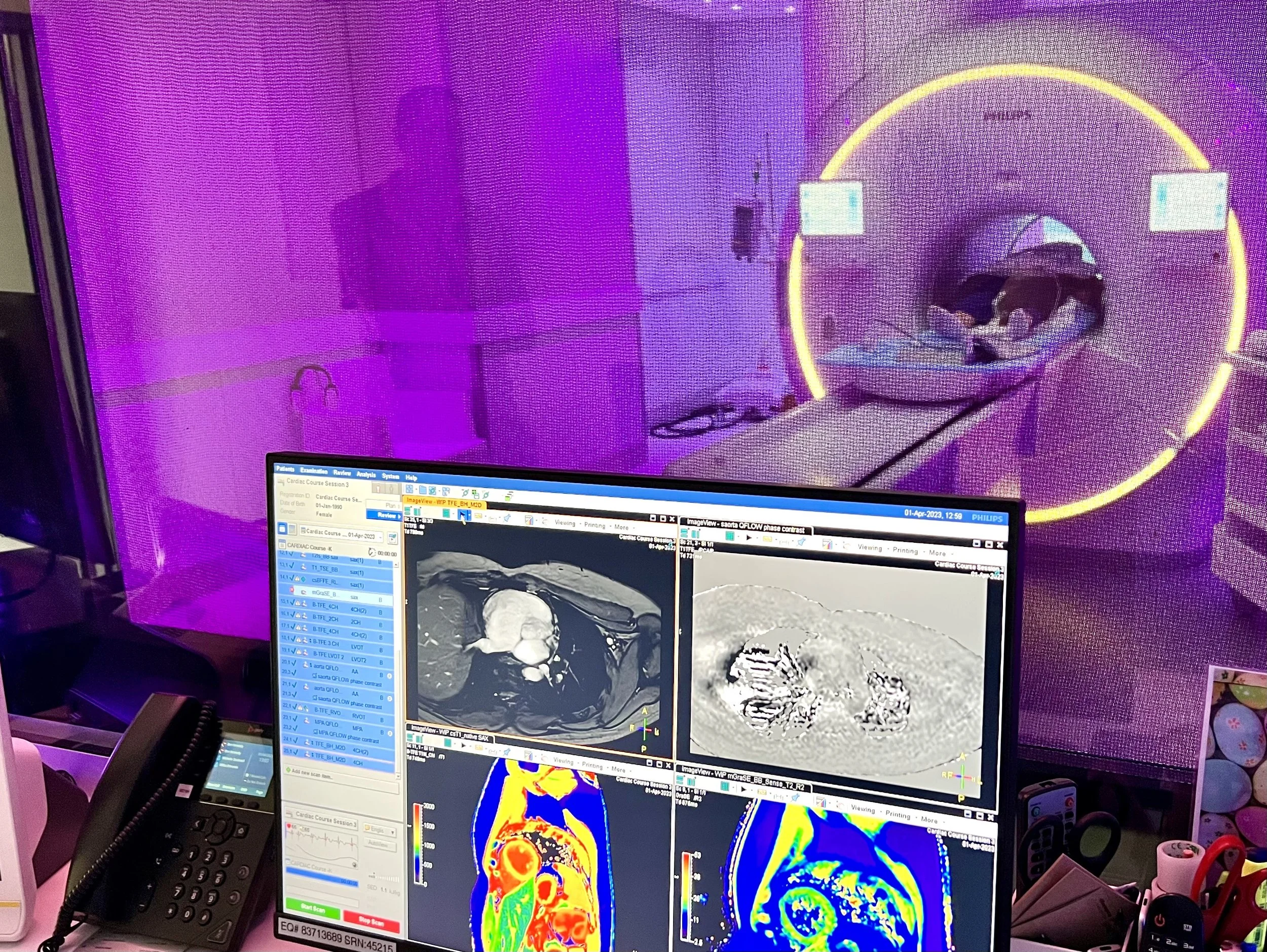Can everyone have an MRI scan?
There are certain types of patients who cannot have an MRI scan (or may only have one with special preparation)s, due to safety concerns or technical limitations. These include:
Patients with pacemakers or other implanted electronic devices. The strong magnetic field of an MRI machine can interfere with these devices. This is often more prominent with stronger magnets (3 Tesla) than weaker magnets (1.5T). In the worst case scenario, this may cause harm to the patient. In some cases, patients with these devices may still be able to undergo an MRI scan with special precautions, but it will depend on the specific type of device, the type od scan required, the staff available and the MRI machine used.
Patients with loose metal in their body (particularly iron in the eyes): Patients with previous eye damage from metal or iron, such as can occur in welding or shot-blasting, may require eye X-rays before undergoing MRI. The metal can move during the scan and cause damage to the retina.
Patients with certain types of metal implants: Some metal implants, such as those made of iron or steel, can heat up, or move, inside the body during an MRI scan, causing tissue damage or other complications. Patients with these types of implants may need to avoid MRI scans or undergo alternative imaging tests. Joint replacements, cardiac stents, and most cardiac valve replacements are usually safe, because the metal is well anchored, but it is important to mention any implants to the radiographers before entering the scan room.
Patients with severe kidney problems / dialysis: Some MRI contrast agents can be harmful to patients with severely impaired kidney function. In these cases, doctors may need to use a different type of contrast agent or avoid using contrast altogether.
It's important to inform your doctor about any medical conditions, implanted devices, or pregnancy before undergoing an MRI scan to ensure your safety and the best possible imaging results.

